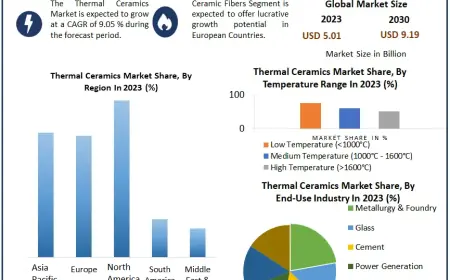Middle East Connected Rail Market Growth and Size, Rising Trends, Revenue, Challenges, Future Opportunities and Forecast Analysis 2033: SPER Market Research
Middle East Connected Rail Market is projected to be worth USD 3.14 billion by 2033 and is anticipated to surge at a CAGR of 7.95%.
Connected rail" describes an advanced approach to efficiently managing railway operations through data exchange between freight, passengers, control centres, and ticket departments, among other aspects of the rail system. Connected rails efficiently incorporate the newest technology, such as artificial intelligence (AI), machine learning (ML), big data, cloud, analytics, and the Internet of Things (IoT), to improve the efficacy and precision of train operations.
According to SPER Market Research, ‘Middle East Connected Rail Market Size - By Service, By Rolling Stock, By Safety and Signaling System - Regional Outlook, Competitive Strategies and Segment Forecast to 2033’ states that the Middle East Connected Rail Market is estimated to reach USD 3.14 billion by 2033 with a CAGR of 7.95%.
Drivers:
The Middle East Connected Rail Market is being driven mostly by the region's cities' increasing urbanisation and population growth. A growing number of people are moving to cities, which increases the demand for efficient and sustainable transit solutions. Connected rail systems offer an environmentally sustainable and dependable mode of transportation by minimising road congestion and its impact on the environment. Governments and transport agencies in the Middle East are investing heavily in rail infrastructure to meet these growing demands. The Middle East places a high value on security and safety, which makes connected rail technology indispensable. By employing state-of-the-art signalling and communication technologies, these systems reduce the likelihood of wrecks and incidents, therefore improving rail safety.
Restraints:
The growth of the Middle East linked rail market is hindered by several factors. One significant obstacle is the high cost of developing and maintaining state-of-the-art rail infrastructure. The integration of cutting-edge technologies like big data analytics, artificial intelligence, and the Internet of Things may need a substantial capital expenditure that some of the region's countries cannot afford. The harsh weather in the Middle East, which is characterised by high heat waves and sandstorms, further complicates the operation and maintenance of rail networks. Due to increasing wear and tear, these conditions may necessitate more frequent maintenance and replacement of train equipment and rail infrastructure.
Request for Free Sample Report @ https://www.sperresearch.com/report-store/middle-east-connected-rail-market.aspx?sample=1
Evolving Passenger Behaviour: The pandemic has led to a change in the way people travel, with a focus on the importance of contactless travel experiences and the real-time information provided by linked rail systems.
Operating Difficulties: Lockdowns caused operational challenges for railway operators, highlighting the need for adaptable and reliable integrated rail networks.
Accelerated Digital Transformation: The outbreak sped the digital transformation of train operations by drawing attention to the significance of linked technologies in ensuring operational continuity.
The Middle East connected rail market varies significantly by region, owing to variances in economic development, government policy, and infrastructure investments. The Gulf Cooperation Council (GCC) countries, particularly Saudi Arabia, the UAE, and Qatar, are leading the way in regional rail growth, thanks to ambitious economic diversification programs and significant government investments. Major players in the market are Siemens Mobility, Alstom, Bombardier Transportation, Thales Group, Huawei Technologies, Cisco Systems, and Others.
Middle East Connected Rail Market Segmentation:
By Service: Based on the Service, Middle East Connected Rail Market is segmented as; Predictive Maintenance, Passenger Information System, Train Tracking and Monitoring, Automated Fare Collection System, Passenger Mobility.
By Rolling Stock: Based on the Rolling Stock, Middle East Connected Rail Market is segmented as; Freight Wagons, Passenger Wagons, Diesel Locomotive, Electric Locomotive, Light Rail and Trams.
By Safety and Signaling System: Based on the Safety and Signaling System, Middle East Connected Rail Market is segmented as; Positive Train Control, Communication Based Train Control, Automated Train Control.
By Region: This research also includes data for Saudi Arabia, UAE, Qatar, Kuwait, Bahrain, Oman.
For More Information, refer to below link: -
Middle East Connected Rail Market Outlook
Related Reports:
Follow Us –
LinkedIn | Instagram | Facebook | Twitter
Contact Us:
Sara Lopes, Business Consultant – USA
SPER Market Research
+1-347-460-2899
What's Your Reaction?
 Like
0
Like
0
 Dislike
0
Dislike
0
 Love
0
Love
0
 Funny
0
Funny
0
 Angry
0
Angry
0
 Sad
0
Sad
0
 Wow
0
Wow
0















































